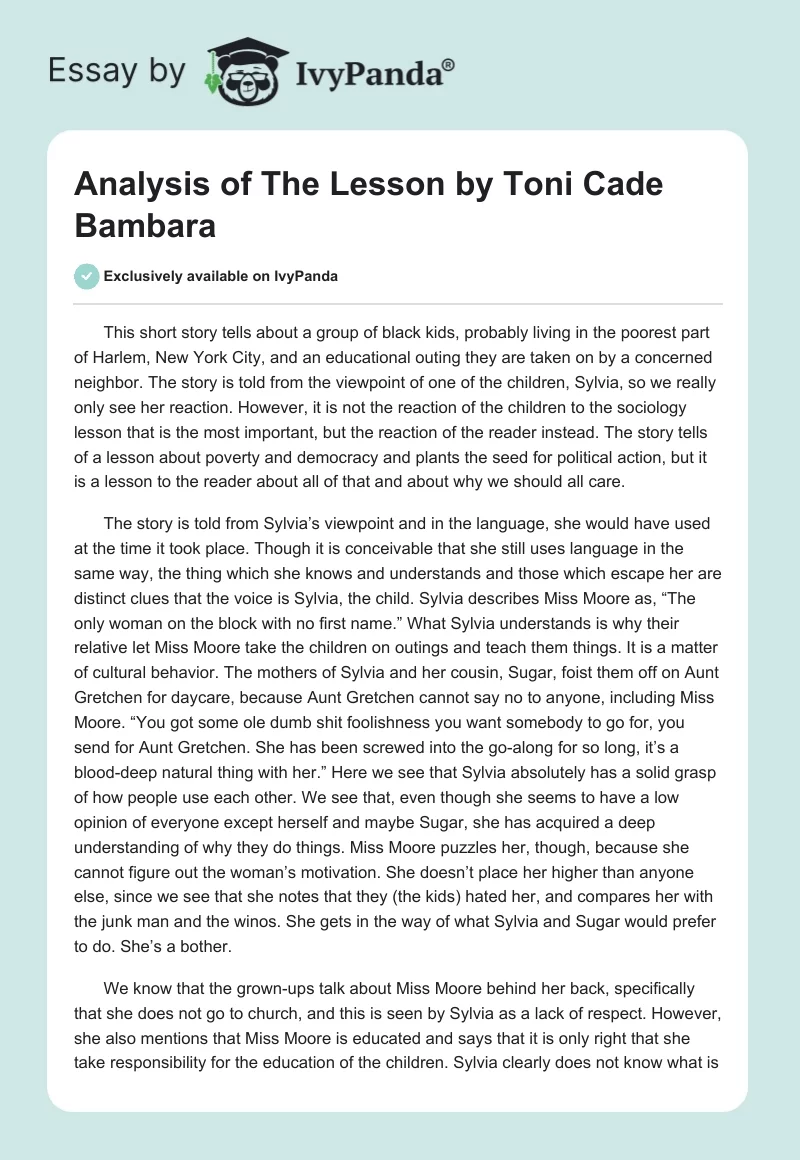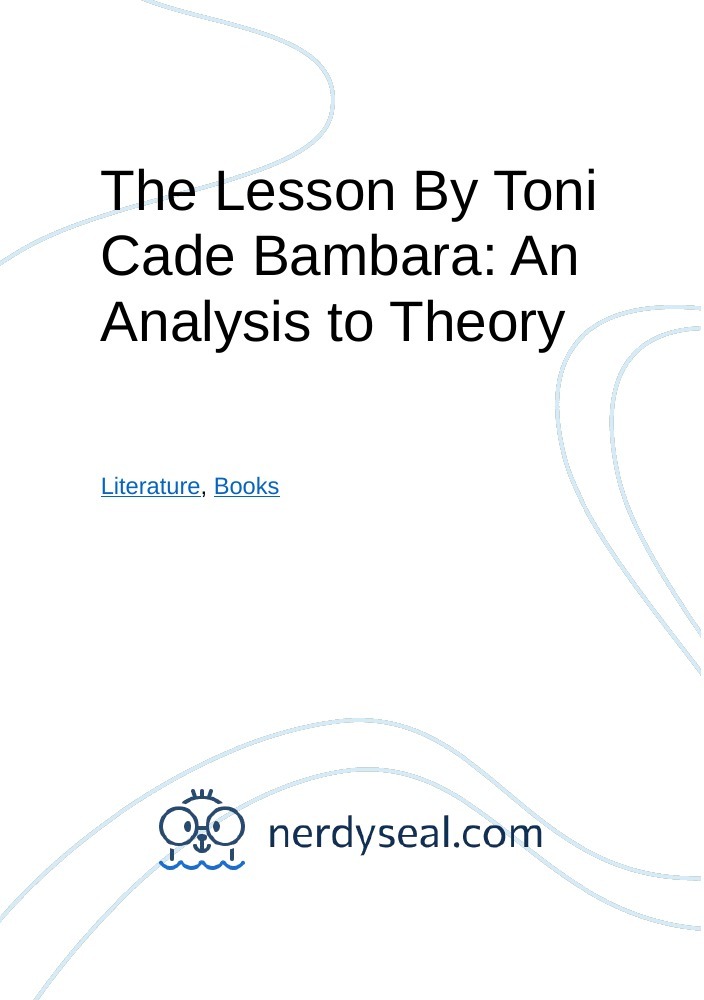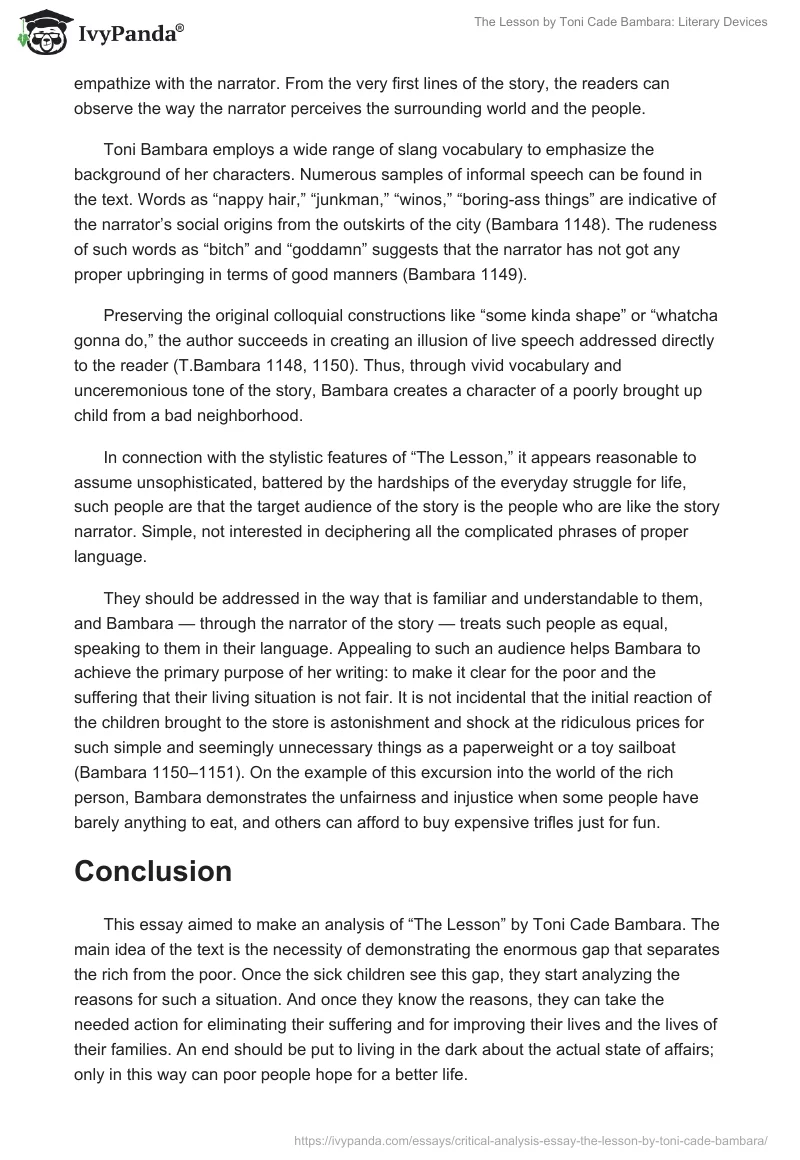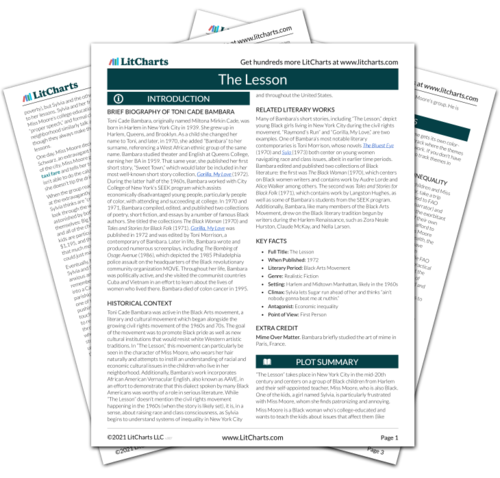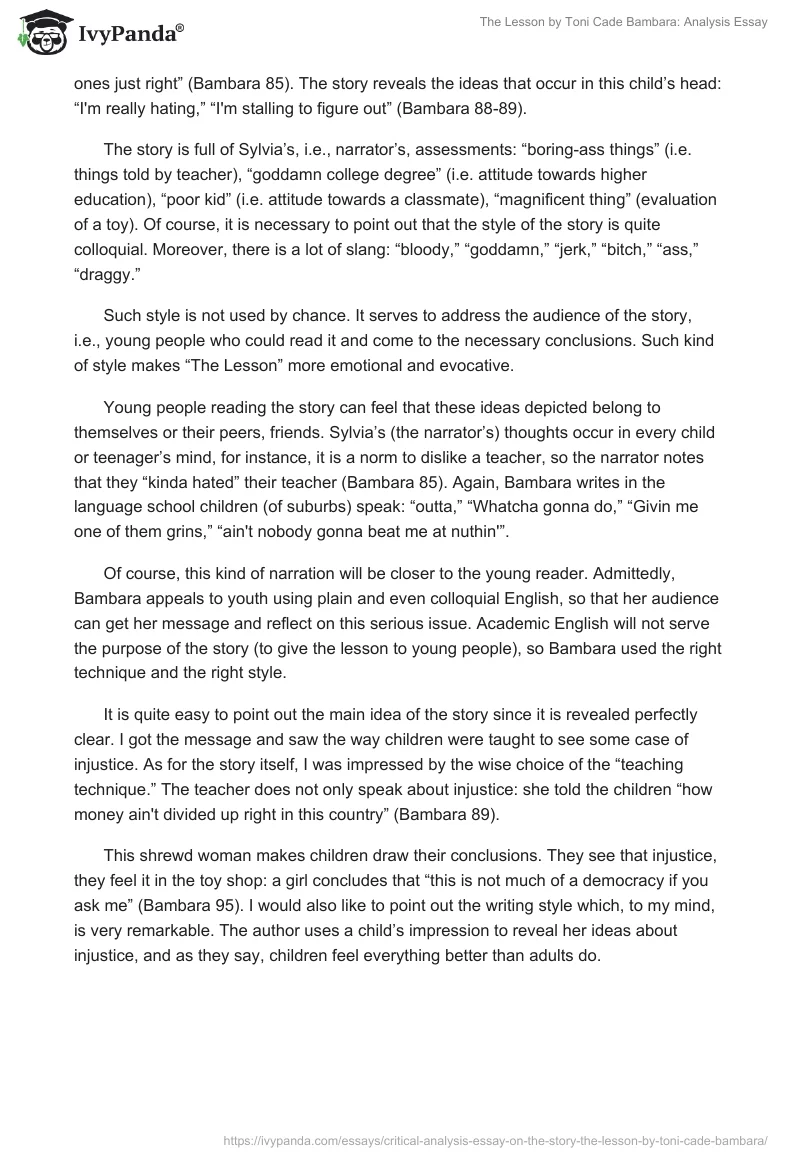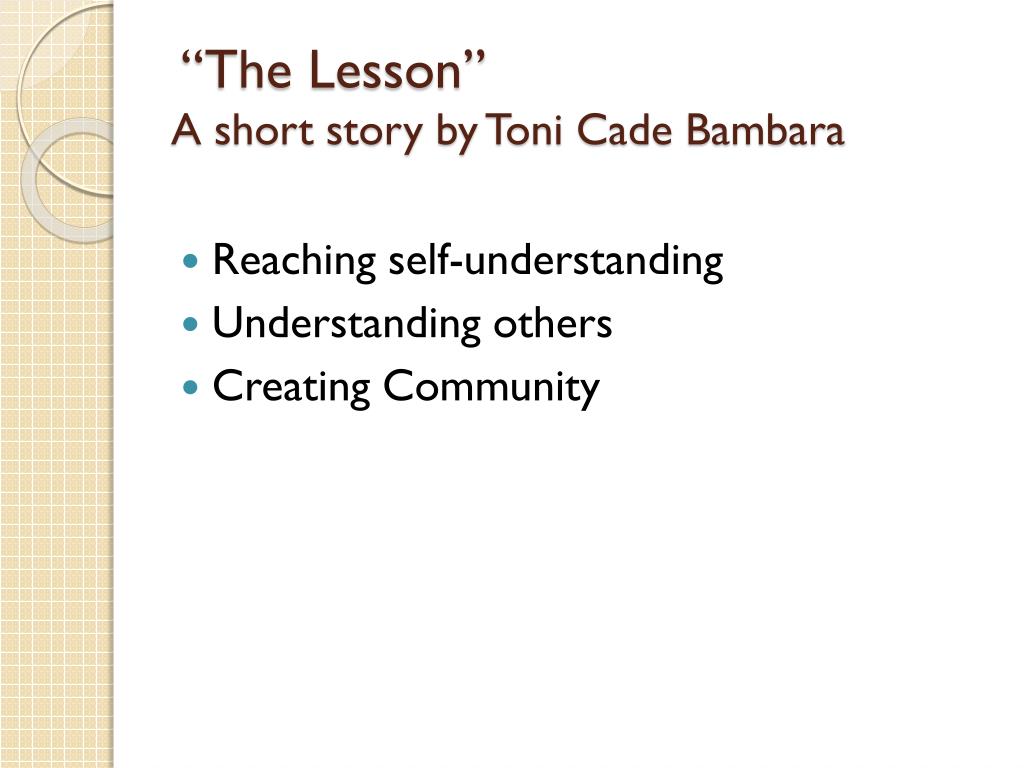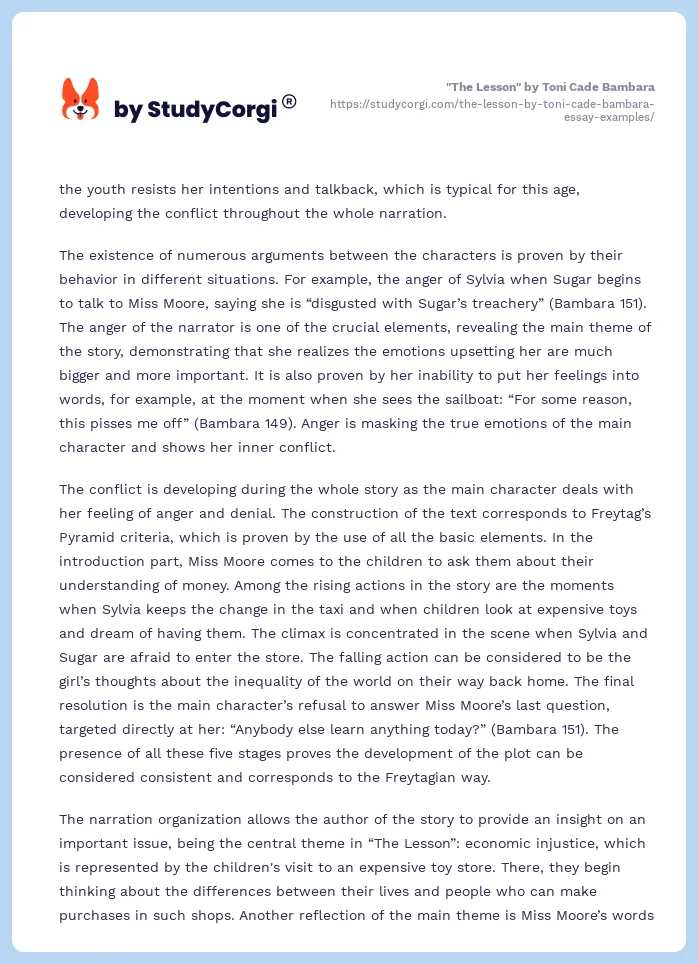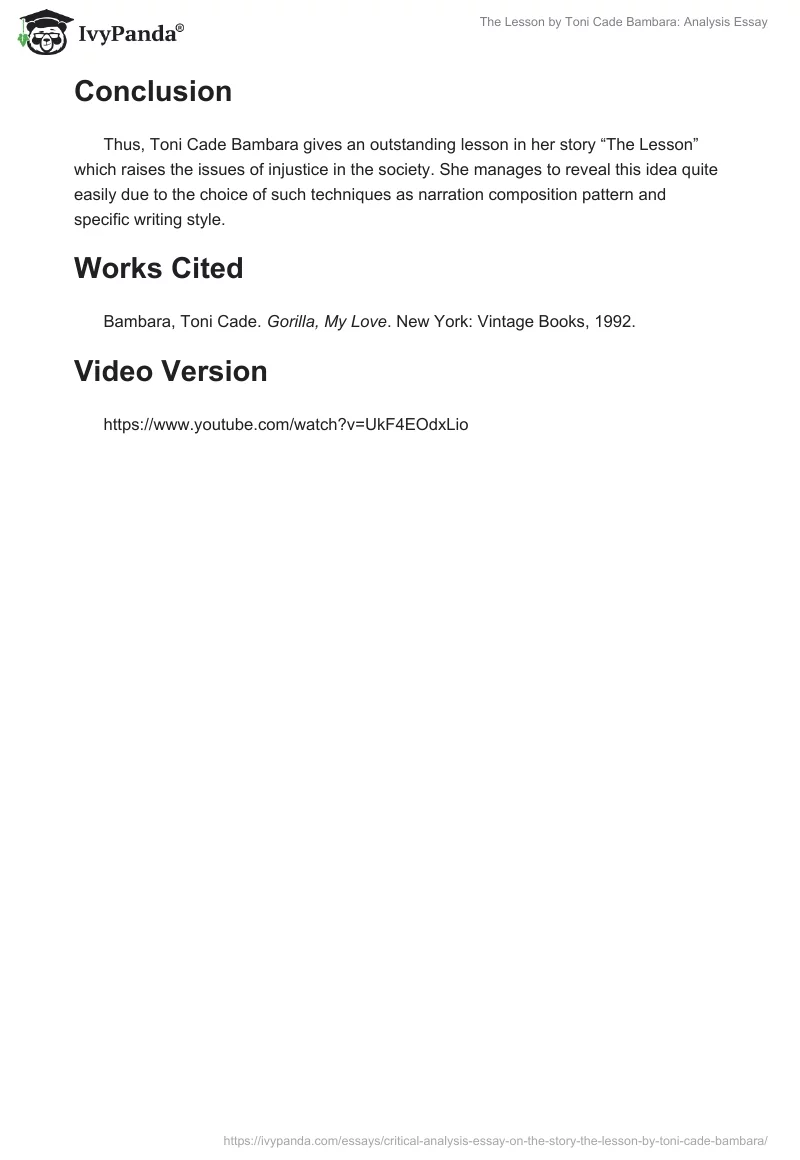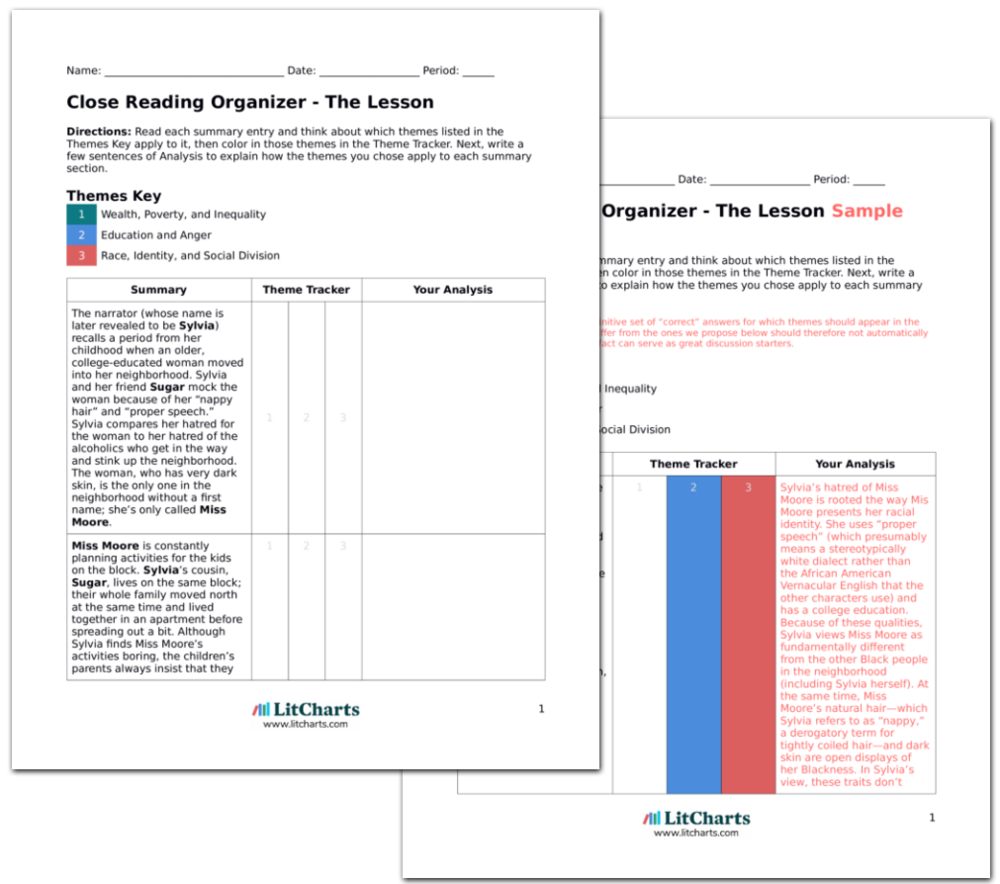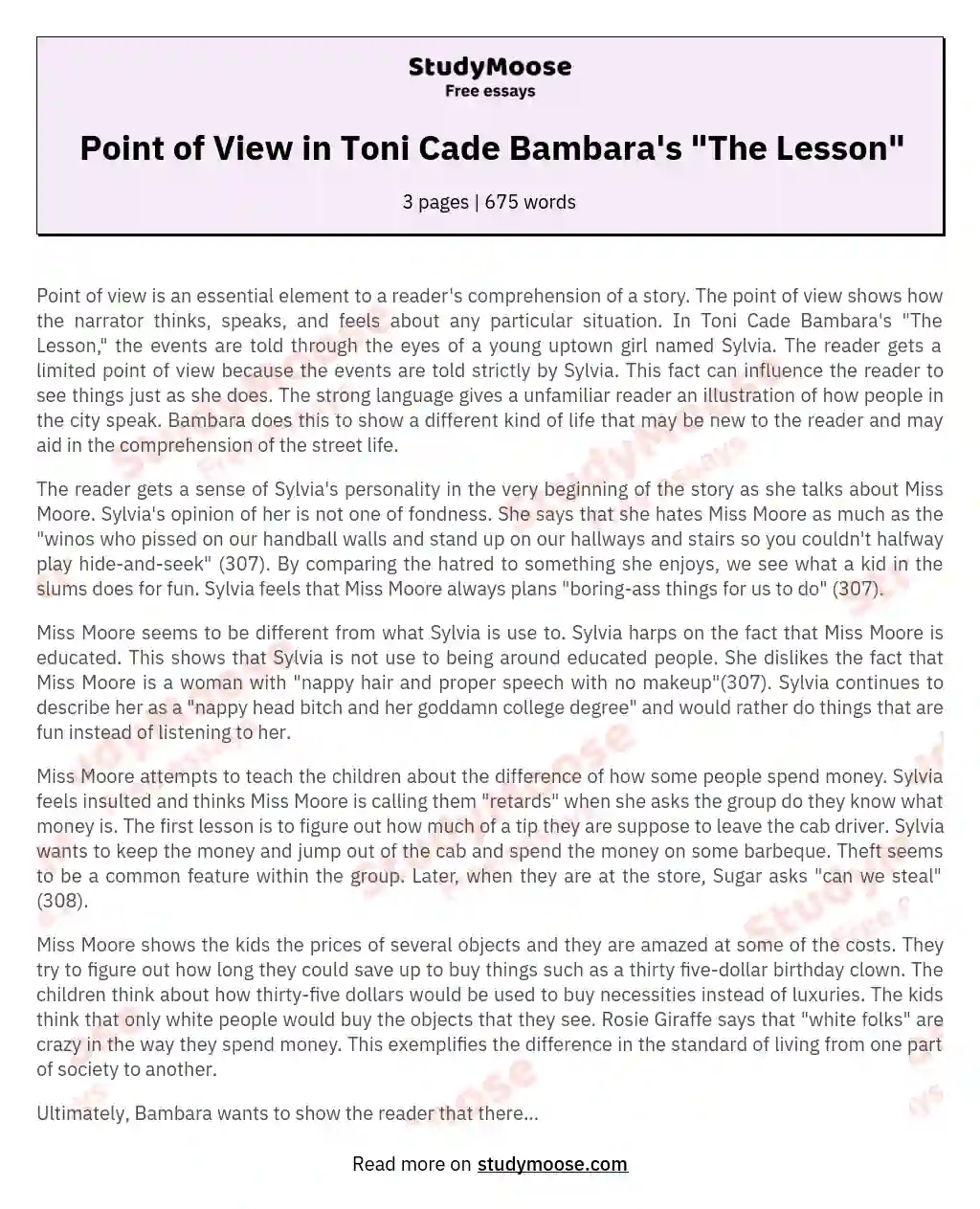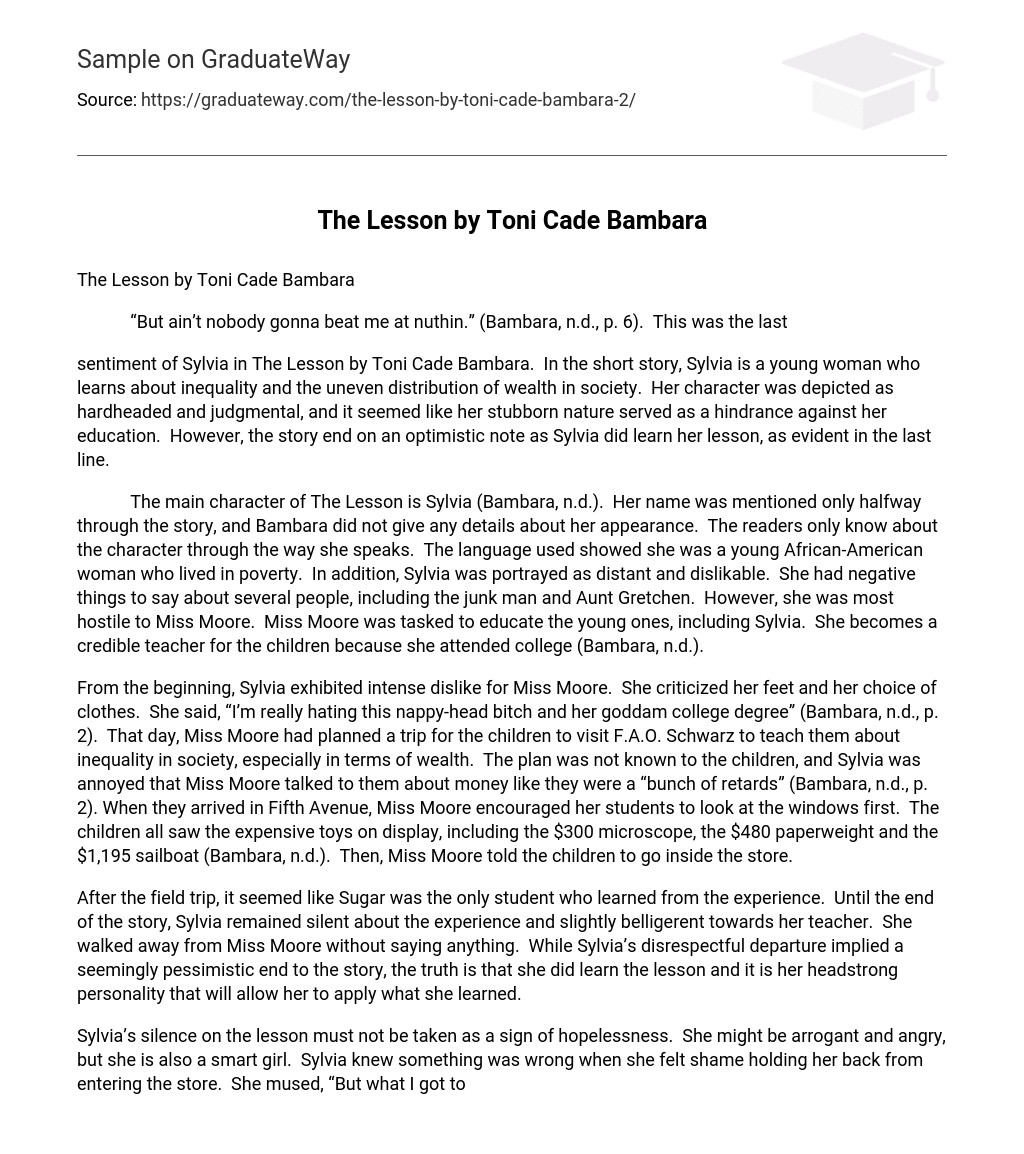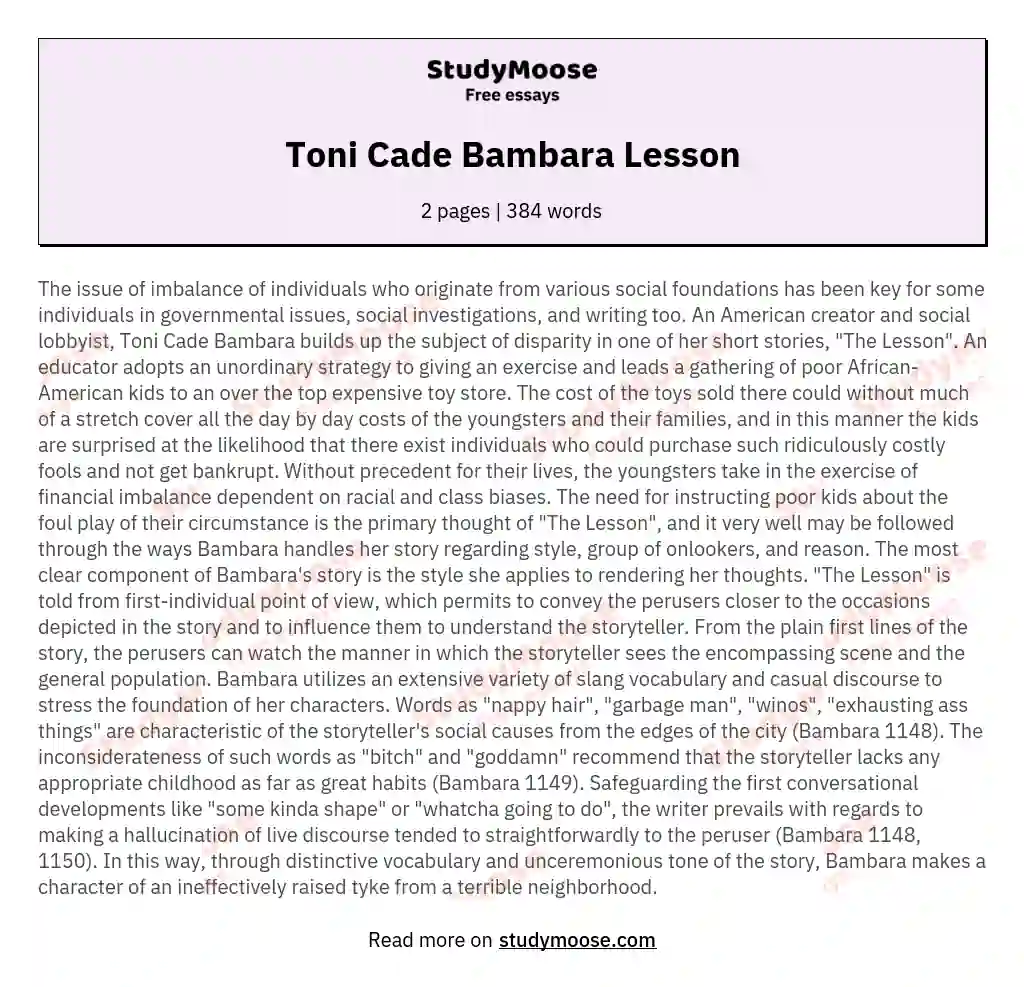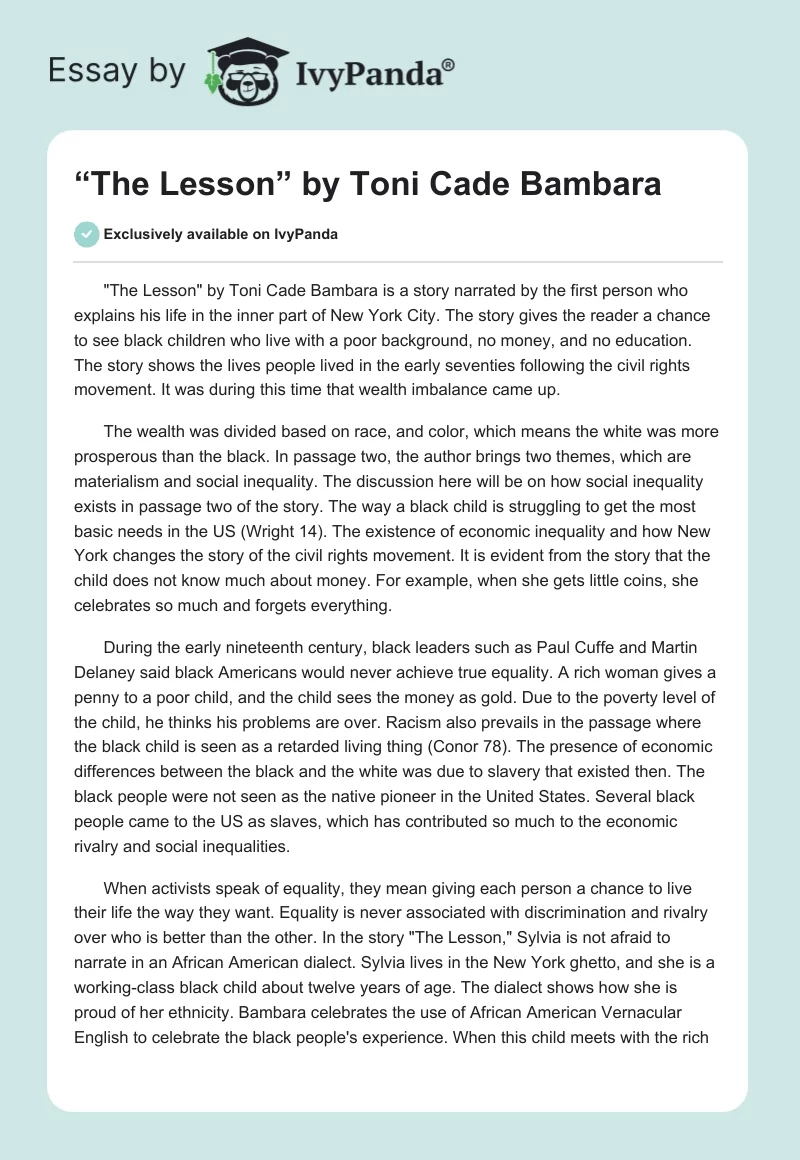Summary Of The Lesson By Toni Cade Bambara
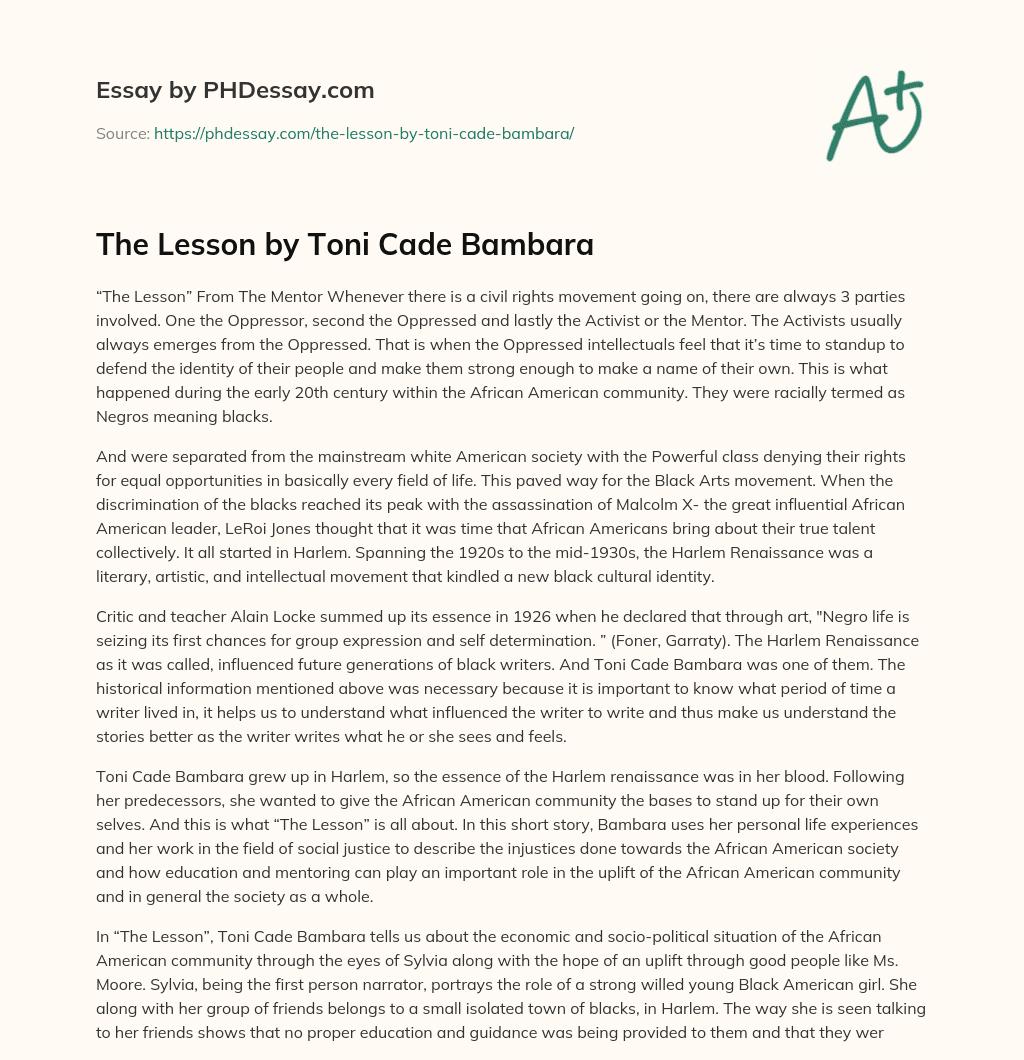
Alright, gather 'round folks! Let's dive into Toni Cade Bambara's short story, "The Lesson." Think of it as a field trip gone wild, with a side of economic awakening!
A Fancy Toy Store Fiasco
The story kicks off with Miss Moore, a highly educated woman who's taken it upon herself to educate the neighborhood kids. She's not exactly popular; they see her as a know-it-all trying to spoil their fun.
But, Miss Moore has a plan! She drags these kids from their familiar Harlem streets to a crazy expensive toy store on Fifth Avenue. Can you imagine? It’s like dropping Dorothy from Kansas right into Oz!
This ain't your grandma's toy store. We're talking about a giant paperweight shaped like a sailboat costing more than most of their apartments. Seriously! It’s enough to make your jaw drop and your eyeballs pop out.
Sugar's Got It
The kids, naturally, are stunned. But Sugar, a particularly observant kid, gets it. She realizes the insane price tag isn’t just about the toys themselves.
Sugar is the real MVP here. She sees the inequality staring her right in the face. It's like a lightbulb goes off in her head, a very expensive, Tiffany-lamp-shaped lightbulb.
It dawns on Sugar that someone, somewhere, has a LOT of money to spend on frivolous things, while she and her friends are struggling. Hello, harsh reality check!
Sylvia's Silent Struggle
Then we have Sylvia, the narrator. She's tougher, more guarded. She's wrestling with the whole thing internally. It’s like she's trying to solve a really difficult math problem, but the numbers keep changing.
Sylvia is angry and confused. She doesn't want to admit that Miss Moore might be right, but the contrast between their lives and the lives of those who can afford these luxuries is undeniable.
She resists the lesson, but deep down, something has shifted. It's like a tiny crack has appeared in her armor, letting a little bit of understanding seep in.
The Real Lesson
So, what's the big takeaway? It's not just about the price of toys. It's about economic inequality and how it affects young people's perspectives.
Bambara is showing us that education isn't just about textbooks and classrooms. It's about experiencing the world and questioning the structures around us.
Think of it as a wake-up call. Miss Moore's field trip wasn’t just a fun outing; it was a strategic intervention, a plot to shake up the kids' worldview.
Money and Power
The story isn't necessarily saying money is evil, or that everyone needs to be rich. It’s about acknowledging the imbalance of wealth and its impact on opportunities.
It poses questions like: Who gets to decide what's valuable? Why are some people's lives so different from others?
Basically, Bambara wants us to think critically about the world around us and question why things are the way they are.
End Result?
The story ends with Sylvia running off, determined to figure things out for herself. She hasn't completely embraced Miss Moore's lesson. She probably thinks Miss Moore is still annoying, but she's engaged.
It’s not a fairy tale ending. Sylvia is ready to go out into the world armed with a new awareness. She is more aware of her surroundings and society.
Ultimately, "The Lesson" is a powerful reminder that education can be a catalyst for change. Even if it starts with a really, really expensive toy.
